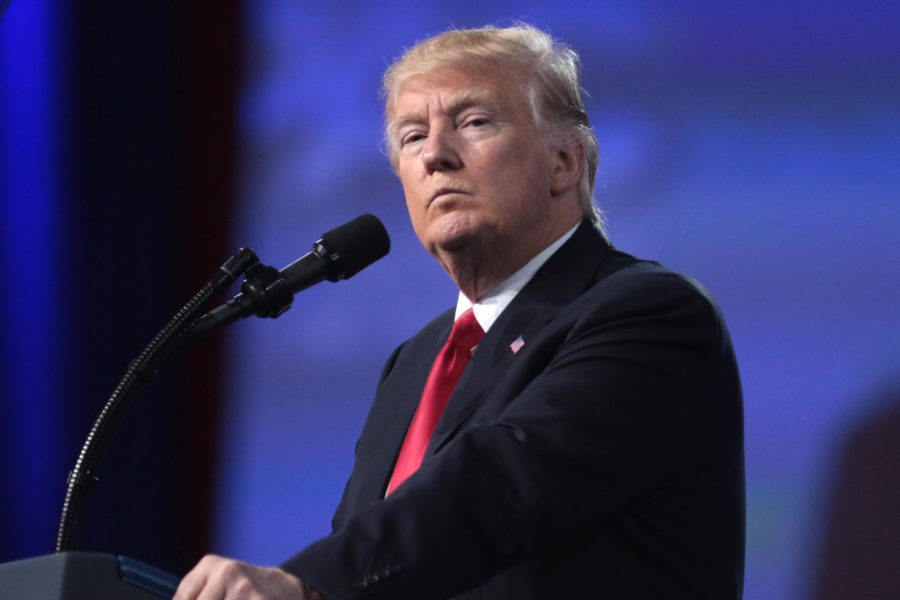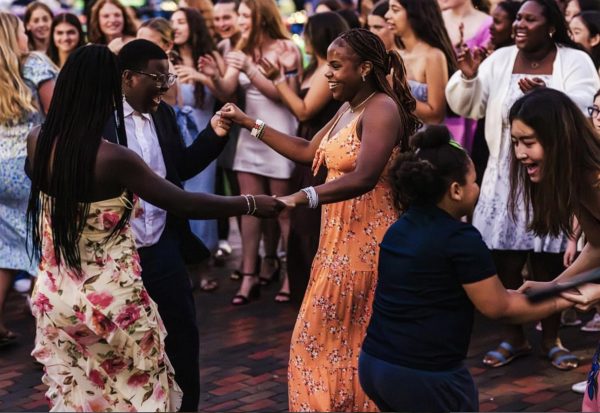Possible Trump Indictment Looms Large
UPDATE: On March 30 at 6 p.m., a grand jury voted to indicted former President Trump.
Donald Trump has once again found himself in difficult legal territory after some raised the possibility of him being arrested in the near future.
Speculation has begun to spread about Trump’s possible indictment ever since the embattled former president took to social media on Feb. 18 to predict that he would be arrested on Tuesday, Feb. 21, for charges related to an illegal hush money payment he paid to adult film star Stormy Daniels during his 2016 presidential campaign.
While Trump’s prediction was not accurate, the possibility of his arrest sometime in the near future continues to loom large.
The former president has faced numerous investigations and legal battles since his inauguration to the presidency in 2017. Trump, long criticized by some for his dismissal of the law, faced impeachment twice during his presidency, most recently for his involvement in the violent Jan. 6, 2020 Insurrection on the U.S. Capitol.
This potential indictment comes amid a flurry of ongoing investigations into Trump, including four major inquiries being conducted across the country. Among these investigations is a criminal investigation opened by the Manhattan District Attorney, which is the case that could potentially result in his arrest in the coming weeks.
The case, opened in 2020, stems from a $130,000 payment Trump made to Stormy Daniels in 2016. The payment was made to cover up an affair he allegedly had with the adult film star. Although such a payment is not necessarily illegal, Trump may have used campaign funds for the transaction, which would violate campaign finance regulations, according to the New York Times.
William Newman, a civil rights attorney in Northampton and host of the WHMP radio program The Bill Newman Show, sees Trump’s announcement as a purely political move that was not based on any valid information.
“I think the only implications are political—he was just trying to get ahead of the story,” Newman, who has discussed the investigations into Trump on his radio show, explained. “I seriously doubt that the authorities gave him any heads up as to when the indictment would be coming down.”
In response to Trump’s indictment prediction, many have noted that Grand Jury Proceedings are not public, so there is no way that the former president could have been informed about the timing of his arrest. While the Manhattan District Attorney can notify Trump if an indictment is imminent once its investigation has wrapped up, they cannot do so if the investigation is still ongoing.
“Grand jury proceedings are confidential, so if anyone tells you they know what is happening with a Grand Jury they’re inventing it,” Newman said.
Alvin Bragg, the District Attorney for Manhattan, echoed this idea in a press release on the investigation.
“I understand the desire to know more about our investigative steps, but the law requires secrecy during an investigation,” Bragg said. “It is a felony in New York for a prosecutor to disclose grand jury matters … and for good reason.”
Ever since Trump was impeached before leaving office in January 2020, many have wondered if his actions could make him legally ineligible to run for the presidency in 2024, adding to the growing number of Americans opposed to his 2024 campaign.
According to a CNBC All America survey, 61% of Americans believe that Trump should not seek the presidency in 2024. Among those polled, many report his legal behavior as the reason for their stance.
While some may not approve of Trump’s actions, Newman noted, there is nothing stopping him from running unless he gets indicted.
“There are two different questions: can he run, and should he?” Newman explained. “The first question is whether there is a legal prohibition from him running, and at this point, since he was not convicted in the impeachment trial, there is no prohibition against him.”
If Trump is ultimately indicted, though, he will lose his ability to run in the next election.
“If he is convicted, the Constitution prohibits him from seeking office,” Newman told The Willistonian. “But since he wasn’t, there’s no legal impediment from him seeking office again.”
Regardless of the outcome of his investigation, Bragg says he is committed to accountability.
“I pledge that the Office will publicly state the conclusion of our investigation – whether [or not] we move forward with an indictment,” Bragg said in his press release. “In the meantime, we will not be discussing our investigative steps.”
While Trump may not be indicted in the immediate future, his legal challenges—as well as the investigations into his conduct—are far from over.
“We are going through documents, interviewing witnesses, and exploring evidence not previously explored,” Bragg said of the Manhattan case. “As we have previously said, the investigation continues.”
Olin Rose-Bardawil is a senior from Northampton, MA who has written for the Willistonian since 2021 and has served as its editor-in-chief since 2023. In...











